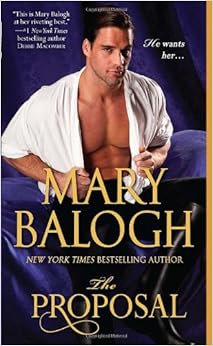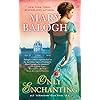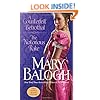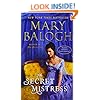
The Proposal (Survivors' Club Book 1)
and over one million other books are available for Amazon Kindle. Learn more


Flip to back
Flip to front

The Proposal (Survivor's Club) Mass Market Paperback – May 28, 2013

$7.19
FREE Shipping on orders over $35.
Only 7 left in stock (more on the way).
Ships from and sold by Amazon.com.
Gift-wrap available.
NO_CONTENT_IN_FEATURE
Start reading The Proposal (Survivors' Club Book 1) on your Kindle in under a minute.
Don't have a Kindle? Get your Kindle here, or download a FREE Kindle Reading App.
Don't have a Kindle? Get your Kindle here, or download a FREE Kindle Reading App.
Best Books of the Month
Want to know our Editors' picks for the best books of the month? Browse Best Books of the Month, featuring our favorite new books in more than a dozen categories.
Want to know our Editors' picks for the best books of the month? Browse Best Books of the Month, featuring our favorite new books in more than a dozen categories.
Product Details
Would you like to update product info or give feedback on images?.
|
Editorial Reviews
From Booklist
When Gwendoline Grayson, Lady Muir, pays a visit to an old acquaintance on the Cornwell coast, she never imagined a sprained ankle would open the door to romance. Let alone with Hugo, Lord Trentham, who was born a commoner, made a lord for his heroic leading of a “forlorn hope” in the Peninsular War, and became wealthy due to his late father’s business acumen. Though appearing to live ideal lives on the surface, each is hiding horrible emotional wounds for which they blame themselves. Hugo needs a wife so he can fulfill his father’s wish and find a suitable match for his sister. His plan is to find a woman of his own class and live a simple life, but when his sister expresses interest in hobnobbing with the ton, Hugo proposes a mock engagement to Gwen. Balogh’s richly dimensional characters are so very real as she makes the reader feel part of life and a great variety of relationships during the Regency era. --Diana Tixier Herald
--This text refers to the
Hardcover
edition.
Review
“This is Mary Balogh at her riveting best. Everyone loves a wounded hero, and Balogh introduces us to an unforgettable one who discovers the healing power of love.”—#1 New York Times bestselling author Debbie Macomber
“[Mary Balogh] writes with wit and wisdom. . . . The Proposal is both moving and entertaining and the beginning of what promises to be an outstanding series.”—Romance Reviews Today
“A historical romance of unusual thoughtfulness and depth.”—Publishers Weekly
“[Mary Balogh] writes with wit and wisdom. . . . The Proposal is both moving and entertaining and the beginning of what promises to be an outstanding series.”—Romance Reviews Today
“A historical romance of unusual thoughtfulness and depth.”—Publishers Weekly
More About the Author
Mary Balogh is the New York Times bestselling author of the acclaimed Slightly novels: Slightly Married, Slightly Wicked, Slightly Scandalous, Slightly Tempted, Slightly Sinful, and Slightly Dangerous, as well as the romances No Man's Mistress, More than a Mistress, and One Night for Love. She is also the author of Simply Love, Simply Unforgettable, Simply Magic, and Simply Perfect, her dazzling quartet of novels set at Miss Martin's School for Girls. A former teacher herself, she grew up in Wales and now lives in Canada.
Customer Reviews
Most Helpful Customer Reviews
123 of 125 people found the following review helpful
By
A. Reid
VINE VOICE on March 23, 2012
Format: Hardcover
Vine Customer Review of Free Product
(
What's this?
)
6 Comments
Sending feedback...
Mary Balogh's books are not always perfect for me - the beginning of this one seemed exposition heavy as she is obviously setting up a new romance series - but, good heavens, when she hits her stride that woman touches my heart. I grin like an idiot, tear up, lose track of everything around me. I can't pull myself away. She draws me in completely.
This romance is unusual in a lot of ways. The hero is a gruff, socially awkward introvert; the heroine, while more traditional in some ways, is a widow in her 30s with a pronounced limp. Both of them have traumas in their pasts that they have each been working in their way to overcome, and both have been living life in a kind of holding pattern as they work their way towards recovery. The chemistry between them is, to me, electric - fueled, I believe, by the fact that in spite of their visible differences, they are similar at the core. Devoted, dutiful and brave, they suffer in silence. In the course of their courtship, they learn to speak to each other, to themselves, to others.
Without wanting to give too much away, I'll say that those who enjoy rollicking adventures would probably do better to look elsewhere. There are no highwaymen or spies lurking in the shadows. The biggest challenges this couple have to overcome are internal. The adventure is emotional. To put it bluntly, there's a lot of navel-gazing here. But this didn't bother me; I found the lead characters very well-rounded, well-realized people, and I invested heavily in the outcome. They could not themselves have been rooting any more for their happily-ever-after than I was.
I enjoyed their tale tremendously. To those who like emotionally complex, character-driven romance, I recommend.
This romance is unusual in a lot of ways. The hero is a gruff, socially awkward introvert; the heroine, while more traditional in some ways, is a widow in her 30s with a pronounced limp. Both of them have traumas in their pasts that they have each been working in their way to overcome, and both have been living life in a kind of holding pattern as they work their way towards recovery. The chemistry between them is, to me, electric - fueled, I believe, by the fact that in spite of their visible differences, they are similar at the core. Devoted, dutiful and brave, they suffer in silence. In the course of their courtship, they learn to speak to each other, to themselves, to others.
Without wanting to give too much away, I'll say that those who enjoy rollicking adventures would probably do better to look elsewhere. There are no highwaymen or spies lurking in the shadows. The biggest challenges this couple have to overcome are internal. The adventure is emotional. To put it bluntly, there's a lot of navel-gazing here. But this didn't bother me; I found the lead characters very well-rounded, well-realized people, and I invested heavily in the outcome. They could not themselves have been rooting any more for their happily-ever-after than I was.
I enjoyed their tale tremendously. To those who like emotionally complex, character-driven romance, I recommend.
Thank you for your feedback.
If this review is inappropriate, please let us know.
Sorry, we failed to record your vote. Please try again
56 of 59 people found the following review helpful
By
Ann Elliot
VINE VOICE on March 24, 2012
Format: Hardcover
Vine Customer Review of Free Product
(
What's this?
)
Comment
Sending feedback...
Regency romances are much like the locked-room type of mystery story. There are only so many options and the rules of the genre must be obeyed. Mary Balogh is a master of Regency novels. She uses limited story elements wisely, and can probably use them to create an infinite number of tales.
In "The Proposal," she has chosen to explore guilt, one of her favorite themes. Both Hugo, the hero, and Gwen, the heroine, suffer from deep regrets and survivor's guilt. There is also the theme of class distinction -- in this instance, she is of the aristocracy and he is middle class. To that mixture, fold in the strong, silent personality of the hero and the heroine's very conscious cheerfulness and refusal to give in to self-pity. Stir in Balogh's penchant for characters making love outdoors. Balogh uses those selections from her author's bag of tricks over and over, but always in different combinations.
"The Proposal" has a tried-and-true Balogh plot: a couple find mutual attraction, make love, and then spend the rest of the story sorting out their emotions and learning about each other to arrive back at intimacy at the end of the book.
Some Balogh books are heavy on pathos. Others are light-hearted. This one treads a sort of middle path between the two.
There is some feeling of deja vu as bits of other Balogh novels waft through the story. For instance, the "I am going to marry the first woman I see" ploy from "The Ideal Wife" resurfaces, but here it is a joke among the hero and his friends rather than a basis for the novel.
Whether or not a reader enjoys this book will depend upon how that person likes the ingredients in Balogh's current confection. I enjoyed the book.Read more ›
In "The Proposal," she has chosen to explore guilt, one of her favorite themes. Both Hugo, the hero, and Gwen, the heroine, suffer from deep regrets and survivor's guilt. There is also the theme of class distinction -- in this instance, she is of the aristocracy and he is middle class. To that mixture, fold in the strong, silent personality of the hero and the heroine's very conscious cheerfulness and refusal to give in to self-pity. Stir in Balogh's penchant for characters making love outdoors. Balogh uses those selections from her author's bag of tricks over and over, but always in different combinations.
"The Proposal" has a tried-and-true Balogh plot: a couple find mutual attraction, make love, and then spend the rest of the story sorting out their emotions and learning about each other to arrive back at intimacy at the end of the book.
Some Balogh books are heavy on pathos. Others are light-hearted. This one treads a sort of middle path between the two.
There is some feeling of deja vu as bits of other Balogh novels waft through the story. For instance, the "I am going to marry the first woman I see" ploy from "The Ideal Wife" resurfaces, but here it is a joke among the hero and his friends rather than a basis for the novel.
Whether or not a reader enjoys this book will depend upon how that person likes the ingredients in Balogh's current confection. I enjoyed the book.Read more ›
Thank you for your feedback.
If this review is inappropriate, please let us know.
Sorry, we failed to record your vote. Please try again
46 of 49 people found the following review helpful
By
Marcy L. Thompson
VINE VOICE on April 24, 2012
Format: Hardcover
Vine Customer Review of Free Product
(
What's this?
)
Comment
Sending feedback...
While Mary Balogh is one of the more consistent writers of Regency Historical novels, I worried about this novel before I read it. It bears the burden of being both the first book in a new series and the thirteenth set in the milieu occupied by the heroine. Either of these factors can be a drag on a novel, for different reasons, and it's not hard to imagine why having both present at the same time could really drag a book down.
The first novel in a series, especially one like this, where the main group of characters has an annual meeting at which they all show up and spend time together, has to establish the series setting (is it the marriage stories of the six Bedwyn siblings? the unexpected romances of a group of teachers at a select seminary for girls? the stories of a family centered around what happens to ae earl's family when the earl dies young and the title goes to the son of a vicar living in genteel poverty in a remote village?). At the same time, the novel has to stand alone as a good story on its own.
The thirteenth story in a group of connected characters has the problem of serving both new readers and those who have read the previous twelve books. People like the brother of the heroine and her favorite-cousin-who-was-raised-with-her-as-a-sister have to make sense to people who have never read the previous books, while still ringing true for returning readers. In fact, the one part of the book I did not like was almost certainly an attempt to deal with this issue. At one point, the heroine decides to tell her cousin-raised-as-a-sister the full story of her first marriage, which she has until now kept a closely guarded secret.Read more ›
The first novel in a series, especially one like this, where the main group of characters has an annual meeting at which they all show up and spend time together, has to establish the series setting (is it the marriage stories of the six Bedwyn siblings? the unexpected romances of a group of teachers at a select seminary for girls? the stories of a family centered around what happens to ae earl's family when the earl dies young and the title goes to the son of a vicar living in genteel poverty in a remote village?). At the same time, the novel has to stand alone as a good story on its own.
The thirteenth story in a group of connected characters has the problem of serving both new readers and those who have read the previous twelve books. People like the brother of the heroine and her favorite-cousin-who-was-raised-with-her-as-a-sister have to make sense to people who have never read the previous books, while still ringing true for returning readers. In fact, the one part of the book I did not like was almost certainly an attempt to deal with this issue. At one point, the heroine decides to tell her cousin-raised-as-a-sister the full story of her first marriage, which she has until now kept a closely guarded secret.Read more ›
Thank you for your feedback.
If this review is inappropriate, please let us know.
Sorry, we failed to record your vote. Please try again











